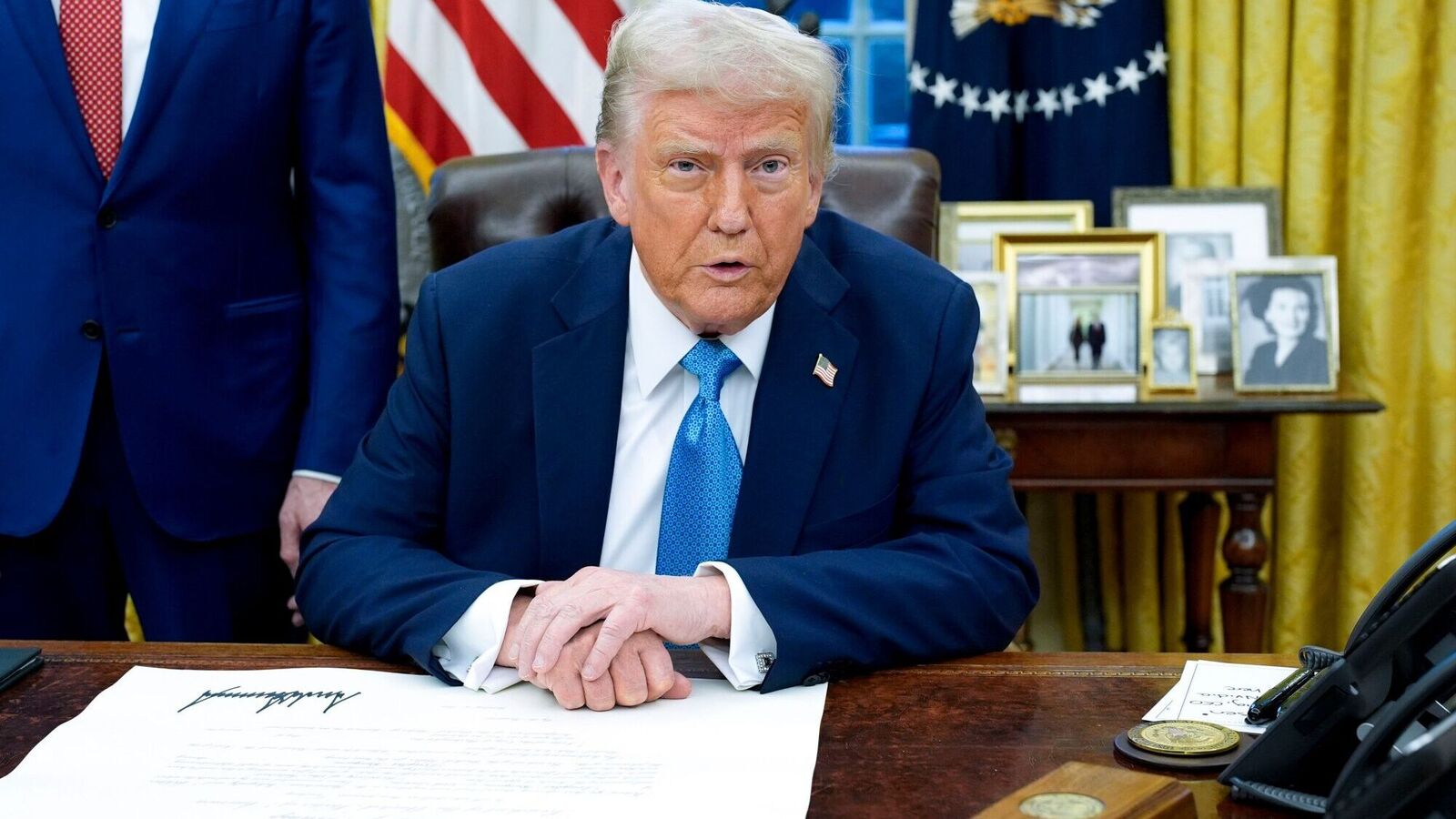US President Donald Trump when asked about the possibility of granting a delay on imposing substantial new tariffs on imports from Mexico, Canada, and China, firmly responded, “No, no. Not right now, no,” making it clear that his administration’s new tariffs on imports from Mexico, Canada, and China will take effect as planned on February 1.
The move includes a 25% tariff on goods from Mexico and Canada and a 10% levy on Chinese imports. The administration has justified the decision as a measure to curb the flow of migrants and fentanyl into the United States.
Dismissal of bargaining tool notion
Trump dismissed the idea that his threats of imposing levies were merely a bargaining tool. He emphasised the significant trade deficits with these partners, stating, “No, it’s not … we have big (trade) deficits with, as you know, with all three of them.”
Potential for increased tariffs
Trump hinted at the possibility of substantially increasing tariffs, though he left room for uncertainty by saying, “It’s something we’re doing, and we’ll possibly very substantially increase it, or not, we’ll see how it is.” He underscored the financial benefits to the United States, noting, “But it’s a lot of money coming to the United States.”
Speaking in the Oval Office while signing executive orders, Trump acknowledged that the tariffs could lead to short-term economic disruptions and increased costs for consumers.
“It’s something we’re doing, and we’ll possibly very substantially increase it, or not, we’ll see how it is.”
Oil tariff exception and future tariff plans
Trump noted a partial exemption for Canadian oil, which will face a 10% tariff instead of the 25% applied to other Canadian goods. However, he warned that broader tariffs on oil and natural gas imports could be introduced by mid-February.
Also, Trump revealed plans for new tariffs on European goods, as well as on materials such as steel, aluminum, and copper. He also suggested potential duties on pharmaceuticals and semiconductors, hinting at an even broader trade policy shift in the coming months.
White House justification and market reaction
White House spokesperson Karoline Leavitt justified the tariffs, particularly against China, citing the country’s alleged role in supplying fentanyl, which she claimed has caused widespread fatalities in the United States.
Despite concerns about potential market instability, Trump dismissed fears of negative financial repercussions, stating that the tariffs were necessary to protect American interests.


